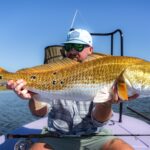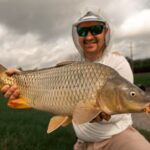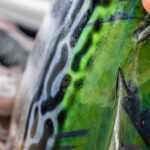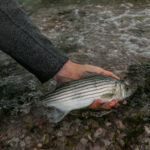
Louisiana Bull Reds Up for Harvest Again: H.B. 604 Must Not Pass
Photo Credit: Carter Abramson | Trevor Johnson Every now and then, we encounter something so
New England guides and anglers have experienced a fantastic Atlantic bonito run this season. On top of the bonito, there is also a presence of jumbo false albacore with many reports of double digit fish being more common than an anomaly. These two species have a huge impact on the coastal economy in the region, namely alleviating the stress of fewer striped bass and bluefish opportunities. Thankfully, we have great news on the management front for both species:
Atlantic bonito and false albacore management are on the agenda for the MFAC meeting next week.
North Carolina is no longer the only state attempting to manage false albacore. Massachusetts is taking it a step further by adding Atlantic bonito.
Here’s the meeting info:
9AM – September 17, 2024
Kingston Town House, 26 Evergreen Street, Kingston, MA
We can’t thank Massachusetts enough for taking a precautionary approach to fisheries. The state agency is one of the best in the country. It is logical to address an issue before it becomes a problem. If you are available to attend this meeting, you can make an enormous impact for this effort. The discussion for albies and bonito will begin around 11 and public comment starts at noon.
We encourage anglers to recognize this is a critical step in the process but only the first step. The message for this stage of the discussion is not complicated. All we are asking for is to begin the process. We are not yet in a place to suggest size and creel limits.
Here’s a short list of talking points on this issue.
The ball is moving down the field. Thank you to all of our fisheries advocates for what you do. You are making a difference, and our fisheries will have a better long term outlook because of it.

Photo Credit: Carter Abramson | Trevor Johnson Every now and then, we encounter something so

This past weekend, ASGA proudly sponsored the Dirty Carp Tournament in Louisiana — and no, you didn’t misread that.

After years of data pouring in from The Albie Project, advocacy, persistence, and support from

This morning, the Connecticut Environment Committee held a hearing on House Bill 6248, a bill
We rely on our members and donations to keep fighting for a sustainable tomorrow in marine conservation.
GIVE THE GIFT OF FISHERIES CONSERVATION THIS HOLIDAY SEASON. SHOP ASGA GOODS THAT FUND FISHERIES RESEARCH & ADVOCACY CAMPAIGNS
JOIN ASGA IN CALLING FOR CRITICAL MANAGEMENT ACTION AFTER YEARS OF SPAWN FAILURES & POOR MANAGEMENT.
By using this website, you agree to our use of cookies. We use cookies to provide you with a great experience and to help our website run effectively. To learn more, please review our privacy policy.
5 Responses
Considering the low number of Albies and Bonito that are kept is there a need for creel and size limits? For me replacing treble hooks with single hooks helps for a quicker and cleaner release.
Steve, management reflects more than just recreational limits, it also helps safeguard from new, large scale commercial fisheries developing and establishes the pathway for action if/when needed in the future. As other inshore fisheries dwindle, albie interest is growing from all sectors Both species are understudied. There is not a large body of science pointing to abundance at scale. The ASGA ethos is based upon precautionary action that prevents issues in the future, instead of waiting for issues to develop and chasing our tail (as we do for many other fisheries). Anglers making decisions with their tackle is a great way to minimize release mortality. Research through The Albie Project has documented that these fish are more hardy than we may have thought and they survive catch and release at a high rate.
Believe it or not, over the past five years (2019-2023), about 40 percent of the false albacore caught by recreational fishermen have been harvested. There have been a spate of articles about keeping and eating false albacore in the angling press over the past few years, and perhaps they’re attracting attention or perhaps a lot of the fish being kept are caught down south, where they’re used for bait for swordfish, grouper, and other species. But the percentage of false albacore kept by anglers has nearly doubled over the past two decades.
As far as Atlantic bonito go, at least here on Long Island, they are often retained for food, and are pretty decent fare.
I have seen anglers keep buckets full of juvenile Atlantic Bonito for lobster bait, Striper bait, chum and food. People over harvest the a Bonito because they are table fare … they don’t freeze well but the urge to keep them is too great. I have been trying to get regulations for size and quantity for several years in Massachusetts. Looks like something may finally happen.
Ray,
Our team was impressed with your thoughtful and respectful comments at the MFAC meeting earlier in the week. Thank you for doing a fantastic job advocating for conservation. Everyone noticed and appreciated it.